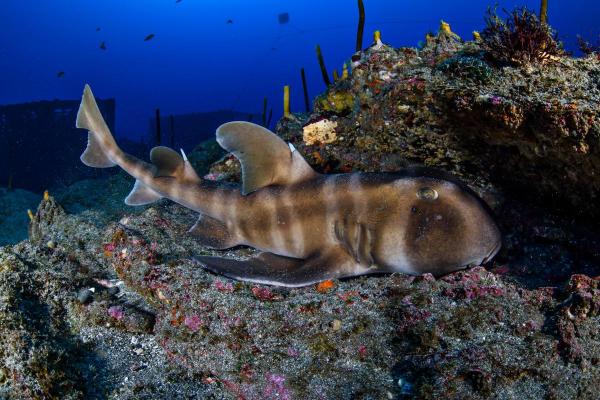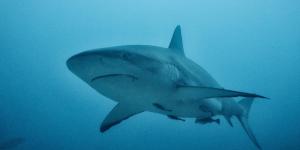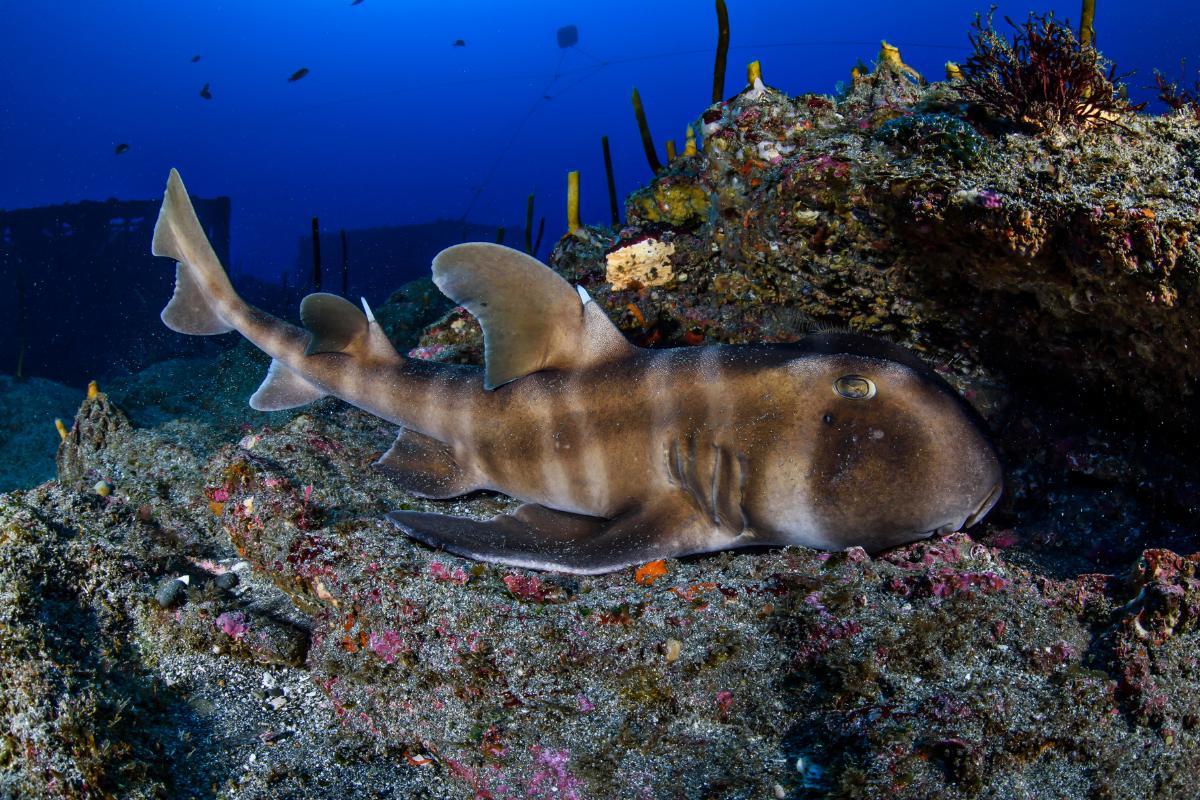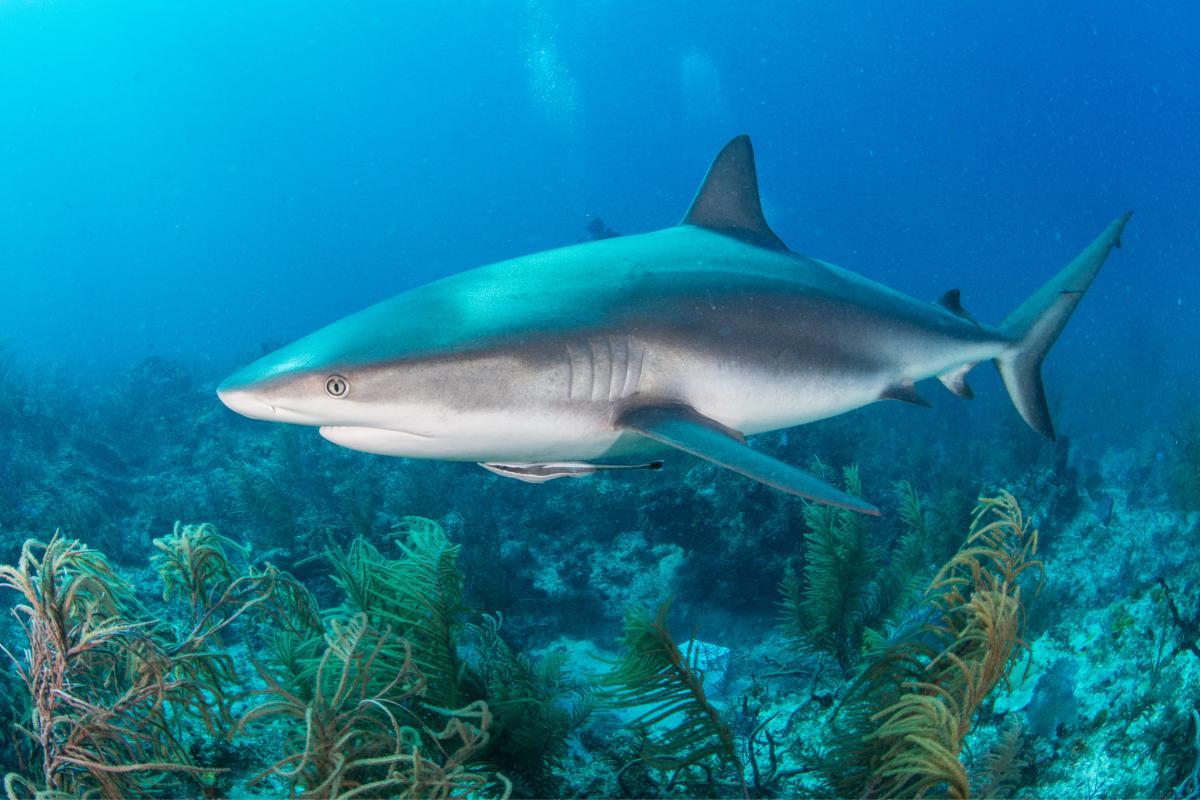Do Sharks Sleep?


Contrary to popular belief, sharks don't sleep in the same way humans or other land animals do.Their unique aquatic environment and physiological adaptations have resulted in a distinct approach to rest. Rather than experiencing deep, unconscious slumber, sharks engage in periods of reduced activity. This state allows them to conserve energy while maintaining a degree of alertness, essential for survival in a predatory world.
In this AnimalWised article, we will discuss whether sharks sleep, explore how these marine predators rest and adapt to their environment, and uncover other fascinating facts about their unique behavior.
Do all animals sleep?
Sleep is a fundamental biological process, a state of reduced consciousness characterized by decreased responsiveness to stimuli. While its exact definition varies across species, it typically involves a combination of behavioral (reduced activity, posture change) and physiological (brainwave patterns, muscle relaxation) markers.
Sleep serves multiple critical functions for animals. Primarily, it's a period of restoration, allowing the body to repair tissues, replenish energy reserves, and strengthen the immune system. Sleep also plays a vital role in cognitive function, aiding in memory consolidation, learning, and problem-solving. Additionally, it helps regulate hormones and maintain overall bodily homeostasis.
The duration and patterns of sleep vary widely across the animal kingdom, influenced by factors such as metabolic rate, predator-prey relationships, and environmental conditions. For instance, carnivores often sleep more than herbivores, while small mammals tend to sleep more than larger ones.
Can sharks sleep yes or no?
Sharks don't sleep in the traditional sense, but they do have periods of rest and reduced activity that is often referred to as "active rest." This state represents a balance between conserving energy and maintaining awareness of their surroundings. As mentioned earlier, all animals require a state of reduced consciousness.
During active rest, sharks significantly reduce their metabolic rate and physical activity. Their movements become slower and more deliberate, allowing them to conserve precious energy. Despite this reduced activity, sharks remain semi-conscious, capable of responding to stimuli, albeit with a slower reaction time. This state of heightened alertness ensures their survival in a predatory environment.
It is important to note that sharks do not enter a deep sleep state with rapid eye movement (REM) cycles like mammals. Instead, they have periods of restful inactivity, which can be considered analogous to sleep.
Sharks rely on a constant flow of water passing over their gills to sustain life. This essential process, which we will explore in greater detail below, allows them to extract oxygen from the water.

Why do sharks move when they sleep?
Sharks, unlike terrestrial vertebrates, rely on their gills for oxygen exchange. Gills are specialized organs composed of filaments rich in blood vessels. Water is drawn over these filaments, allowing oxygen to diffuse into the bloodstream while carbon dioxide is expelled.
Two primary methods facilitate this respiratory process:
- Ram ventilation involves a shark continuously swimming with its mouth open, forcing water over the gills. This method is efficient but necessitates constant movement.
- Buccal pumping enables sharks to pump water over their gills using muscular contractions of the mouth and throat. This mechanism allows for respiration while stationary, as exemplified by nurse sharks (Ginglymostoma cirratum).
Want to learn more about the incredible design of sharks? Discover their anatomy in our other article.

How do sharks sleep?
A prevalent myth about sharks is that they sleep with one eye open. This idea likely stems from the fact that some species of fish, such as certain types of bony fish, exhibit unihemispheric slow-wave sleep (USWS), where one hemisphere of the brain remains active while the other rests, allowing one eye to stay open. This adaptation helps them remain vigilant against predators even while resting. However, there is no substantial evidence that sharks exhibit this behavior.
Unlike mammals, sharks do not have eyelids, so their eyes remain open even during rest. Sharks also lack a neocortex, the part of the brain associated with the sleep patterns seen in mammals. Therefore, their sleep mechanisms are fundamentally different.
While some sharks do need to keep moving to facilitate breathing—particularly obligate ram ventilators, which must swim to pass water over their gills—this doesn't equate to sleeping with one eye open. Instead, these sharks have periods of reduced activity and altered consciousness that serve their rest needs. For instance, some species can rest motionless on the ocean floor while pumping water over their gills, achieving a form of rest without needing to swim constantly.
Sharks often find secure areas like caves, crevices, or under ledges where they can reduce their activity and rest without being easily disturbed by predators or currents. Some species, like the blacktip reef shark (Carcharhinus melanopterus), may rest in groups. This behavior could provide safety in numbers, allowing individual sharks to rest more securely.
How many hours do sharks sleep?
Due to the difficulty of studying sharks in their natural habitats and their diverse behaviors, precise data on the duration of their rest periods are limited. Research typically focuses more on the behavior and physiological aspects rather than quantifying exact hours of rest.
Given these factors, it’s challenging to assign a specific number of hours that sharks "sleep" per day. Instead, it's more accurate to understand that sharks have flexible rest periods adapted to their species-specific needs and environmental conditions.
Want to uncover more about sharks? Read about their reproductive methods in our other article.
If you want to read similar articles to Do Sharks Sleep?, we recommend you visit our Facts about the animal kingdom category.
- Helfman, G., & Burgess, G. H. (2014). Sharks: the animal answer guide . JHU Press.
- Kelly, ML, Collin, SP, Hemmi, JM, & Lesku, JA (2020). Evidence for sleep in sharks and rays: behavioral, physiological, and evolutionary considerations . Brain Behavior and Evolution, 94(1-4), 37-50.
- Kelly, ML, Collins, SP, Lesku, JA, Hemmi, JM, Collin, SP, & Radford, CA (2022). Energy conservation characterizes sleep in sharks . Biology Letters, 18(3), 20210259.
- Kelly, M.L., Spreitzenbarth, S., Kerr, C.C., Hemmi, J.M., Lesku, J.A., Radford, C.A., & Collin, S.P. (2021). Behavioral sleep in two species of buccal pumping sharks (Heterodontus portusjacksoni and Cephaloscyllium isabellum ). Journal of Sleep Research, 30(3), e13139.







